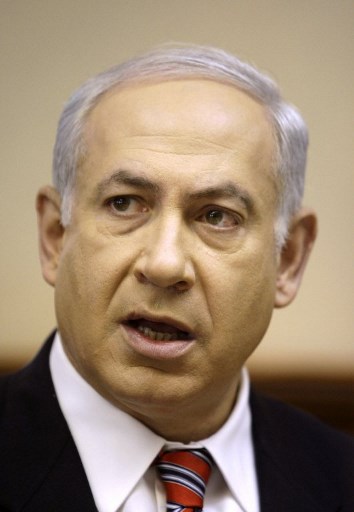
403
Sorry!!
Error! We're sorry, but the page you were
looking for doesn't exist.
Netanyahu rebrands ongoing military campaign against Gaza Strip as "Resurgence War"
(MENAFN) During the Jewish holiday season, Israeli Prime Minister Benjamin Netanyahu has rebranded the ongoing military campaign against the Gaza Strip as the "Resurgence War." This change comes after a year in which he failed to achieve the objectives he previously promised, coinciding with increasing international criticism of Israel's actions and a strengthening of the Palestinian cause.
The transition from the term "Iron Swords" to "Resurgence War" holds considerable meaning. By employing biblical terminology, Netanyahu seeks to unite the fractured and divided factions within Israeli society. This rhetoric promotes a sense of collective identity among supporters of the Israeli government, framing the conflict as a defense of "the homeland, the people, and the temple in the name of God." Such language aims to mobilize the Zionist community to confront what they view as the "Palestinian Arab enemy," leaving little room for dissent or alternative viewpoints.
Netanyahu has connected the survival of Israel to the military operations in Gaza, declaring the conflict to be existential in nature. He insists that a counteroffensive is crucial for the future of the nation, positioning this approach as necessary to revive public support following the perceived failures of "Operation Al-Aqsa Flood."
In response, Palestinian factions assert that the Israeli occupation has not succeeded in dismantling resistance groups or disrupting their operations. Recently, rockets were fired from Khan Yunis in Gaza, reaching deep into Israeli territory, underscoring the resilience and determination of the Palestinian resistance to defend their land, people, and sacred sites.
Furthermore, the Israeli military has struggled to establish complete control over the Gaza Strip and has not managed to recover its prisoners through military actions, as initially claimed. Instead, the Israeli government has been compelled to enter negotiations, facing pressure from its domestic audience amid rising public protests regarding Netanyahu's handling of prisoner exchange discussions and calls for a ceasefire in Gaza.
The renaming of the conflict, along with the rhetoric employed, reveals the intricate dynamics at play—not only in military terms but also within Israeli society itself. Netanyahu is attempting to address growing discontent and unify disparate groups in the face of persistent Palestinian resistance.
The transition from the term "Iron Swords" to "Resurgence War" holds considerable meaning. By employing biblical terminology, Netanyahu seeks to unite the fractured and divided factions within Israeli society. This rhetoric promotes a sense of collective identity among supporters of the Israeli government, framing the conflict as a defense of "the homeland, the people, and the temple in the name of God." Such language aims to mobilize the Zionist community to confront what they view as the "Palestinian Arab enemy," leaving little room for dissent or alternative viewpoints.
Netanyahu has connected the survival of Israel to the military operations in Gaza, declaring the conflict to be existential in nature. He insists that a counteroffensive is crucial for the future of the nation, positioning this approach as necessary to revive public support following the perceived failures of "Operation Al-Aqsa Flood."
In response, Palestinian factions assert that the Israeli occupation has not succeeded in dismantling resistance groups or disrupting their operations. Recently, rockets were fired from Khan Yunis in Gaza, reaching deep into Israeli territory, underscoring the resilience and determination of the Palestinian resistance to defend their land, people, and sacred sites.
Furthermore, the Israeli military has struggled to establish complete control over the Gaza Strip and has not managed to recover its prisoners through military actions, as initially claimed. Instead, the Israeli government has been compelled to enter negotiations, facing pressure from its domestic audience amid rising public protests regarding Netanyahu's handling of prisoner exchange discussions and calls for a ceasefire in Gaza.
The renaming of the conflict, along with the rhetoric employed, reveals the intricate dynamics at play—not only in military terms but also within Israeli society itself. Netanyahu is attempting to address growing discontent and unify disparate groups in the face of persistent Palestinian resistance.

Legal Disclaimer:
MENAFN provides the information “as is” without warranty of any kind. We do not accept any responsibility or liability for the accuracy, content, images, videos, licenses, completeness, legality, or reliability of the information contained in this article. If you have any complaints or copyright issues related to this article, kindly contact the provider above.
Market Research

- Manuka Honey Market Report 2024, Industry Growth, Size, Share, Top Compan...
- Modular Kitchen Market 2024, Industry Growth, Share, Size, Key Players An...
- Acrylamide Production Cost Analysis Report: A Comprehensive Assessment Of...
- Fish Sauce Market 2024, Industry Trends, Growth, Demand And Analysis Repo...
- Australia Foreign Exchange Market Size, Growth, Industry Demand And Forec...
- Cold Pressed Oil Market Trends 2024, Leading Companies Share, Size And Fo...
- Pasta Sauce Market 2024, Industry Growth, Share, Size, Key Players Analys...


















Comments
No comment